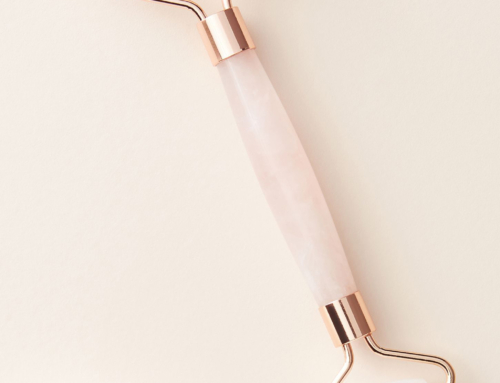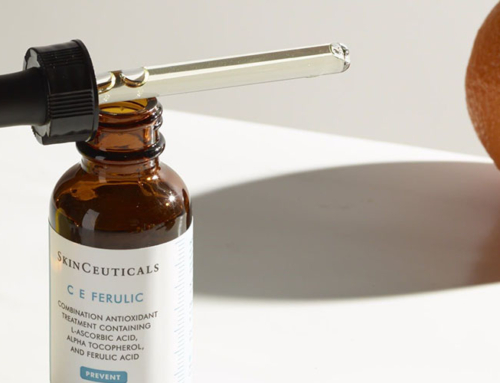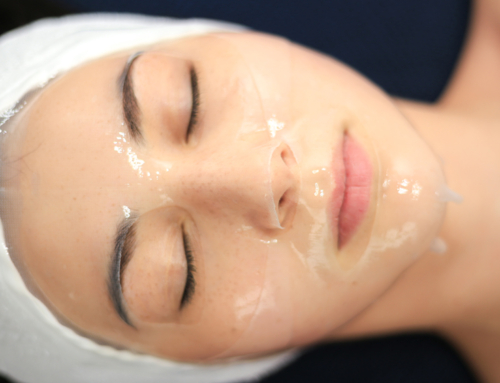The issue with masks…
With many of us wearing face coverings for some months now, there is a new term we will be hearing used more regularly, ‘Maskne.’ And it is definitely a thing!
So what exactly is ‘Maskne?’ Otherwise known as ‘acne mechanica,’ maskne is characterised by bumps and inflammation in the skin where the mask covers. It is caused by the formation of excess heat, humidity, friction and pressure on the skin from wearing face masks or coverings for extended periods of time – creating the perfect environment for bacteria, yeast and other flora such as demodex mites to grow! Combine this ‘mini facial sauna’ with friction and pressure that obstructs the oil glands and hair follicles, and you have the perfect setting for skin irritation and disruption of the all-too-important barrier function.
Why are some people experiencing it more than others?
There are certain factors that have been identified to increase the likelihood of maskne or make it worse:
- wearing a mask made from heavy ‘non-breathable’ fabric/material
- wearing a mask that is too tight
- application of heavy make-up or skincare products that are too occlusive
- using a harsh cleanser that strips the skin off its natural oils and lipids
Importance of masks for public health…
While wearing a face mask or covering can be a nuisance, they are crucial to the reduction of the spread of COVID-19. It is imperative that we all do our part in this fight against this devastating virus. The video below demonstrates how masks have the ability to reduce the spread of respiratory droplets when speaking and coughing.
What can I do about it?
If you are already experiencing maskne, there are a number of things you can do to prevent or reduce the symptoms:
- Avoid wearing heavy facial make-up. As your face is covered by the mask, your papules and pustules will likely not be visible, so concentrate on keeping your brows and lashes well- groomed and applying beautiful eye make-up instead.
- Don’t skimp on your daily skincare routine. It is important now, more than ever, to keep your skin nourished and hydrated with topical vitamins and nutrients.
- If your skin is already presenting with irritation, avoid skincare that contains granular scrubs or strong exfoliating ingredients like retinols and hydroxy-acids. Instead, choose ingredients that will help to support the skins natural protective barrier such as hyaluronic acid, lactic acid, urea and niacinamide.
- Keep your hydration and water intake up and your stress levels in check! Remember to drink at least 8 glasses of water daily, and take some time out for yourself each day.
- Avoid excessive caffeine and alcohol – this can contribute to further inflammation and dehydration.
- Finally and most importantly, choose the correct type of mask to wear. If you have a reusable mask, wash it daily. Ideally, have a few to alternate throughout the day and never wear the same mask more than once without it being washed first! If you have single-use masks, make sure they are just this and kept to single-use only.
So what ‘s the best type of mask to wear…
Choose a mask that fits well around the nose and sides but not too tight on the face. Make sure it has at least three layers of material with high thread count. Multiple layers increase filtering efficiency, making the mask more protective.
Choose a mask that is made from a fabric that is lightweight, soft and comfortable on the skin. We recommend and love silk masks. A recent study from the University of Cincinnati found that silk can serve as an effective material for face coverings. It can be particularly beneficial for patients suffering from mask acne for the following reasons:
- Compared to cotton and polyester, silk is the most hydrophobic barrier to droplets – meaning it is resistant to the penetration of small and aerosolized water droplets – an important avenue for the transmission of COVID-19.
- Silk is more breathable than other fabrics that are prone to trap humidity, and silk can reduce the risk of skin barrier impairment.
- Silk masks are readily re-useable via cleaning and maintains its hydrophobicity and integrity despite repeated washing.
- Silk naturally has antimicrobial, ie. antiviral and antibacterial, properties. This is thought to be due to the presence of copper, a compound which animals naturally incorporate into their silk and known to have antimicrobial activity.
If you have tried all of these steps and feel as though your skin is still unhappy, we suggest seeking help from a dermal therapist, your GP or dermatologist. If your skins barrier is compromised, you may also be developing perioral dermatitis. Perioral dermatitis is characterised by inflammation around the mouth or lower third of the face, and often presents as clusters of small red bumps with dry, flaky skin. This is a medical dermatological condition that may require medical treatment.
References:
1.Chu DK , Akl EA , Duda S , et al . Physical distancing, face masks, and eye protection to prevent person-to-person transmission of SARS-CoV-2 and COVID-19: a systematic review and meta-analysis. Lancet 2020;395:1973–87.doi:10.1016/ S0140-6736(20)31142-9 pmid:http://www.ncbi.nlm.nih.gov/pubmed/32497510
- Bahl P, Bhattacharjee S, de Silva C, et al Face coverings and mask to minimise droplet dispersion and aerosolisation: a video case study Thorax Published Online First: 24 July 2020. doi: 10.1136/ thoraxjnl-2020-215748
- Centers for Disease Control and Prevention (CDC). Use of cloth face coverings to help slow the spread of COVID-19. Available: https://www.cdc.gov/coronavirus/2019- ncov/prevent-getting-sick/diy-cloth-face-coverings.html [Accessed 22 May 2020].
- Parlin AF , Stratton, SM , Culley TM , et al. Silk fabric as a protective barrier for personal protective equipment and as a functional material for face coverings during the COVID-19 pandemic. medRxiv 2020.06.25.20136424; doi: https://doi.org/ 10.1101/2020.06.25.20136424




